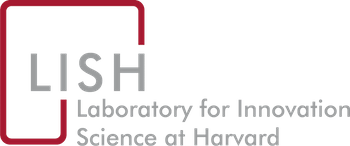Olivia Jung, Andrea Blasco, and Karim R. Lakhani. 2017. “
Perceived Organizational Support For Learning and Contribution to Improvement by Frontline Staff.” Academy of Management Proceedings, 2017, 1.
Publisher's VersionAbstractUtilizing suggestions from clinicians and administrative staff is associated with process and quality improvement, organizational climate that promotes patient safety, and added capacity for learning. However, realizing improvement through innovative ideas from staff depends on their ability and decision to contribute. We hypothesized that staff perception of whether the organization promotes learning is positively associated with their likelihood to engage in problem solving and speaking up. We conducted our study in a cardiology unit in an academic hospital that hosted an ideation contest that solicited frontline staff to suggest ideas to resolve issues encountered at work. Our primary dependent variable was staff participation in ideation. The independent variables measuring perception of support for learning were collected using the validated 27-item Learning Organization Survey (LOS). To examine the relationships between these variables, we used analysis of variance, logistic regression, and predicted probabilities. We also interviewed 16 contest participants to explain our quantitative results. The study sample consisted of 30% of cardiology unit staff (n=354) that completed the LOS. In total, 72 staff submitted 138 ideas, addressing a range of issues including patient experience, cost of care, workflow, utilization, and access. Figuring out the cost of procedures in the catheterization laboratory and creating a smartphone application that aids patients to navigate through appointments and connect with providers were two of the ideas that won the most number of votes and funding to be implemented in the following year. Participation in ideation was positively associated with staff perception of supportive learning environment. For example, one standard deviation increase in perceived welcome for differences in opinions was associated with a 43% increase in the odds of participating in ideation (OR=1.43, p=0.04) and 55% increase in the odds of suggesting more than one idea (OR=1.55, p=0.09). Experimentation, a practice that supports learning, was negatively associated with ideation (OR=0.36, p=0.02), and leadership that reinforces learning was not associated with ideation. The perception that new ideas are not sufficiently considered or experimented could have motivated staff to participate, as the ideation contest enables experimentation and learning. Interviews with ideation participants revealed that the contest enabled systematic bottom-up contribution to quality improvement, promoted a sense of community, facilitated organizational exchange of ideas, and spread a problem-solving oriented mindset. Enabling frontline staff to feel that their ideas are welcome and that making mistakes is permissible may increase their likelihood to engage in problem solving and speaking up, contributing to organizational improvement.
